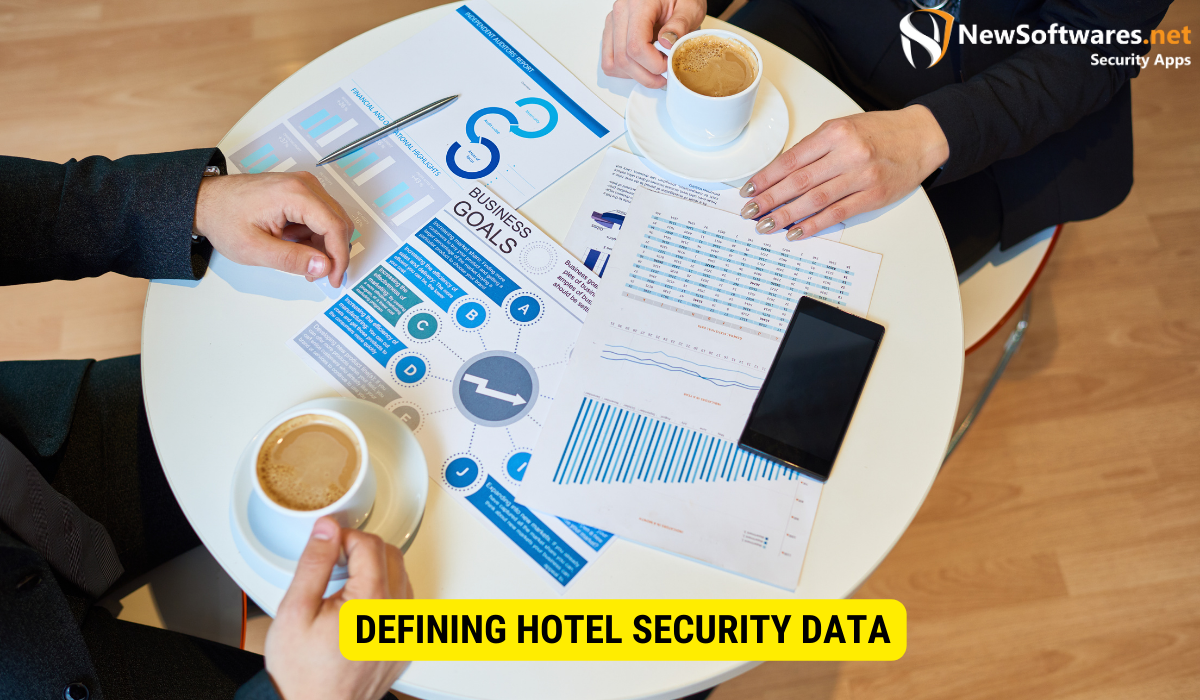Employers are allowed to access hotel security data within specific legal and ethical boundaries, primarily for ensuring safety and security, and must comply with federal and state laws, ensuring privacy and ethical handling of such data.
In today’s digital age, data security is of paramount importance for businesses across all industries. The hotel industry is no exception, with hotel security data holding valuable information about guests, employees, and property safety. However, as an employer, it is crucial to understand the rights and limitations when it comes to accessing hotel security data. Together, we will delve into the legal framework, employer rights, privacy concerns, and best practices surrounding access to hotel security data.
Defining Hotel Security Data

Before delving into the intricacies of accessing hotel security data, it is important to have a clear understanding of what it encompasses. Hotel security data refers to any information collected or generated by security systems employed by hotels to ensure guest safety, maintain property security, and monitor employee activities. Such data may include surveillance footage, access logs, incident reports, and visitor records.
Surveillance footage is a vital component of hotel security data. It is captured by strategically placed CCTV cameras that monitor common areas, entrances, and exits. This footage provides a visual record of activities within the hotel premises, enabling security personnel to identify potential threats or suspicious behavior. Access logs, on the other hand, offer valuable insights into who enters and exits specific areas of the hotel. By keeping track of individuals’ movements, hotels can ensure that only permitted personnel have access to restricted areas.
In addition to surveillance footage and access logs, incident reports are an essential part of hotel security data. These reports document any security-related instances that occur within the hotel, such as theft, vandalism, or unauthorized access. By recording these incidents, hotels can analyze patterns and trends, allowing them to implement preventive measures and improve overall security protocols.
Visitor records also contribute to the pool of hotel security data. These records contain information about individuals who have visited the hotel, including their names, contact details, and purpose of visit. By maintaining accurate visitor records, hotels can enhance their ability to track and monitor individuals, ensuring the well-being and sanctuary of both guests and staff.
The Importance of Hotel Security Data
Hotel security data plays a crucial role in safeguarding both guests and employees. It provides valuable insights into potential security vulnerabilities and allows for timely prevention and resolution of security incidents. This data is not only instrumental in ensuring the safety of individuals but also in preserving the integrity and reputation of the hotel itself.
By analyzing hotel security data, hotels can identify areas of improvement in their security systems and protocols. For example, if a pattern of theft is detected through incident reports and surveillance footage, the hotel can take proactive measures such as increasing security personnel in vulnerable areas or implementing stricter access control measures. This proactive approach helps prevent security incidents from occurring and enhances the overall safety and well-being of everyone within the hotel premises.
Moreover, hotel security data is also valuable in the occasion of an incident or legal dispute. The availability of comprehensive security data can provide crucial evidence and support investigations, ensuring that justice is served and appropriate actions are taken. This not only protects the interests of the hotel but also instills confidence in guests, reassuring them that their safety is a top priority.
Types of Hotel Security Data
Hotel security data encompasses a wide range of information that is collected and stored for security purposes. This may include CCTV footage capturing common areas, entrances, and exits, as well as access control records detailing who enters and exits specific areas. Additionally, incident reports documenting any security-related instances and logs of visitor records may also contribute to the pool of hotel security data.
CCTV footage is a crucial type of hotel security data as it provides visual evidence of activities within the hotel premises. It assists as a warning to potential criminals and helps in identifying individuals involved in security incidents. Access control records, on the other hand, provide a detailed account of who has accessed restricted areas, allowing hotels to track and monitor personnel movements effectively.
Incident reports are another important type of hotel security data. These reports document any security-related incidents, such as theft, assault, or property damage. By maintaining accurate and detailed incident reports, hotels can identify patterns, trends, and potential parts for improvement in their security measures.
Visitor records also contribute to the pool of hotel security data. These records contain information about individuals who have visited the hotel, including their names, contact details, and purpose of visit. By maintaining accurate visitor records, hotels can enhance their ability to track and monitor individuals, ensuring the well-being and security of guests and employees.
Overall, hotel security data is a comprehensive collection of information that is vital for maintaining a safe and secure environment within hotels. It not only helps prevent security incidents but also provides valuable evidence in case of any legal disputes or investigations. By understanding the importance and types of hotel security data, hotels can prioritize the implementation of strong security systems and protocols to ensure the well-being of their guests and employees.
Legal Framework Governing Access to Hotel Security Data
Access to hotel security data is subject to various legal regulations implemented at both the federal and state levels. Adherence to these laws is crucial to ensure the privacy and protection of individuals’ information.
Federal Laws and Regulations
A number of federal laws & regulations govern the collection, storage, and access to data within the hospitality industry. The most notable of these is the Federal Trade Commission Act, which primarily focuses on preventing unfair or deceptive practices concerning data privacy. Additionally, the (HIPAA) Health Insurance Portability & Accountability Act and the (PCI DSS) Payment Card Industry Data Security Standard have specific provisions relevant to the hospitality industry.
State Laws and Regulations
Alongside federal regulations, individual states may have their laws pertaining to data privacy and security. Employers must be well-versed in the specific regulations pertaining to the state in which the hotel operates. Some states, for example, have stricter data breach notification laws or specific requirements regarding the retention of surveillance footage.
Employer’s Rights to Access Hotel Security Data
As an employer, you have certain rights when it comes to accessing hotel security data. However, these rights are not absolute and must be exercised within specific conditions and restrictions.
Conditions for Access
Employers may access hotel security data under certain circumstances, primarily for the purpose of ensuring the security of guests, employees, and the property itself. This access is typically granted based on the need to know, meaning that only authorized individuals with a legitimate purpose are granted access.
Limitations and Restrictions
Access to hotel security data is subject to limitations and restrictions to protect the privacy of individuals. Employers must ensure compliance with applicable laws and regulations, and access should be restricted to authorized personnel on a need-to-know basis. Additionally, data retention policies should be in place to avoid excessive retention of data that is no longer necessary.
Privacy Concerns and Ethical Implications
Accessing hotel security data raises important privacy concerns that employers must carefully consider. Balancing security needs with privacy rights is essential to maintain trust with guests and employees.
Balancing Security and Privacy
To strike a balance between security and confidentiality, employers should implement measures to protect the personal information of individuals captured in hotel security data. This may include implementing encryption techniques to safeguard data during transmission and storage and implementing access controls to restrict data access to only official people.
Ethical Considerations in Accessing Security Data
Ethical considerations play a vital role in accessing hotel security data. Employers must ethically handle data, ensuring that access is solely for legitimate security purposes and not for personal gain. Transparency and consent should be prioritized, and employees and guests should be aware of the hotel’s data collection and usage practices.
Best Practices for Employers

Employers should adhere to best practices when it comes to accessing hotel security data. Instituting policies, providing proper training, and implementing compliance measures can help alleviate risks and ensure the legal and ethical handling of data.
Developing a Policy for Accessing Security Data
Employers should develop a comprehensive policy outlining the purpose and conditions for accessing hotel security data. This policy should provide guidelines for authorized personnel, data retention, and the measures in place to protect data privacy.
Training and Compliance Measures
Appropriate training should be provided to staff who are granted access to hotel security data. This training should concentrate not only on the technical aspects of using security systems but also on the legal and ethical responsibilities associated with handling such data. Employers should regularly monitor compliance and implement auditing measures to ensure adherence to policies and regulations.
Key Takeaways
- Hotel security data includes a wide range of information related to guest and employee safety.
- Federal and state laws and regulations govern access to hotel security data.
- Employers have the right to access hotel security data but must adhere to restrictions and conditions.
- Balancing safekeeping needs with privacy concerns is crucial in accessing and using hotel security data.
- Implementing policies, training, and compliance measures is essential to handling hotel security data effectively and ethically.
FAQs
Are employers legally allowed to access hotel security data?
Yes, employers are generally allowed to access hotel security data under specific conditions and within legal boundaries. Employers need to be aware of the applicable laws and regulations governing data privacy and security.
Can hotel security data be used for other purposes?
Hotel security data should primarily be used for security-related purposes, such as ensuring the safety of guests and employees or investigating security incidents. It should not be used for personal gain or unrelated purposes to protect data privacy and maintain trust.
What can employers do to protect the privacy of individuals in hotel security data?
Employers can protect the privacy of individuals in hotel security data by implementing encryption techniques, restricting access to authorized personnel, and adhering to data retention policies. Transparency and consent should also be prioritized, with employees and guests informed of data collection practices.
How often should employers review and update their policy for accessing security data?
Employers should regularly review and update their policy for accessing security data to ensure its effectiveness and compliance with the evolving legal landscape. Changes in regulations or industry best practices should trigger policy reviews and updates.
What are the potential consequences of mishandling hotel security data?
Mishandling hotel security data can have severe consequences, including legal implications, reputational damage, and loss of trust from guests and employees. Violations of data privacy can result in hefty fines and legal proceedings.
Conclusion
Understanding employer rights when it comes to accessing hotel security data is essential in maintaining the safety and security of guests, employees, and their belongings. While employers have the right to access this data, it must be done within legal boundaries, ensuring compliance with applicable laws and regulations. Balancing security needs with secrecy concerns is crucial, and ethical considerations should guide employers’ actions. By adhering to best practices and implementing proper policies and training, employers can protect the privacy of individuals while effectively utilizing hotel security data for its intended purpose.
